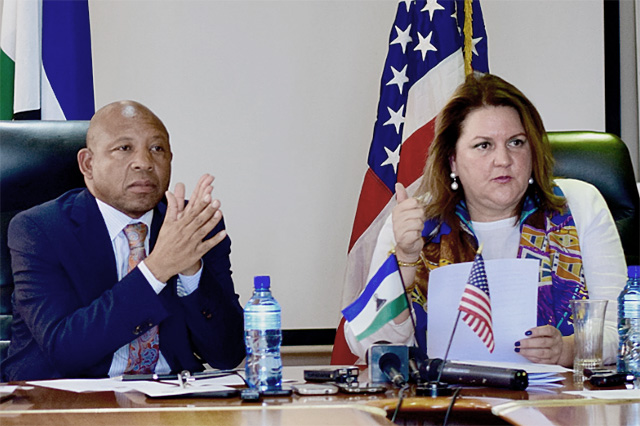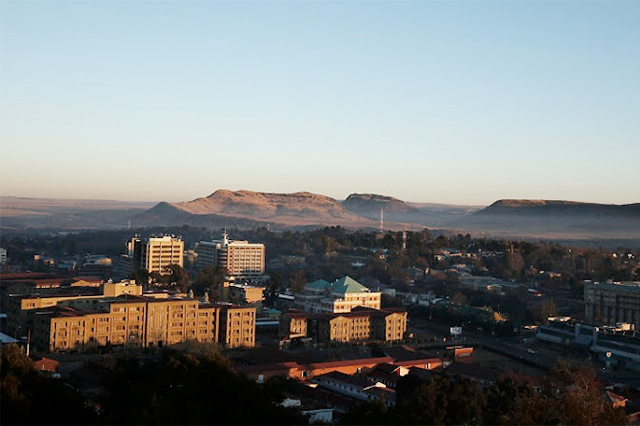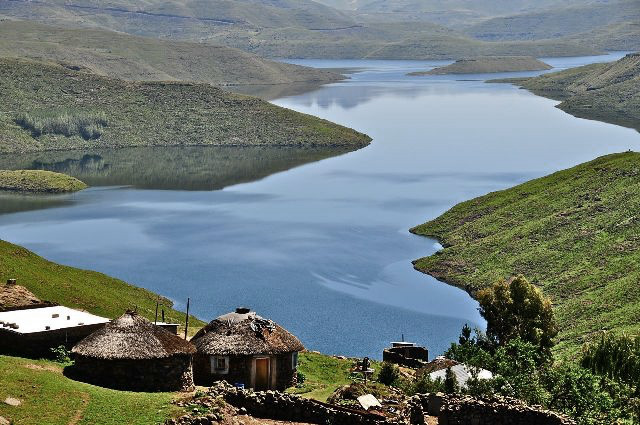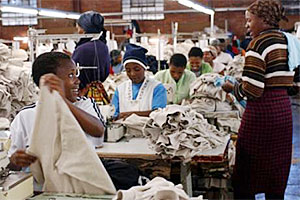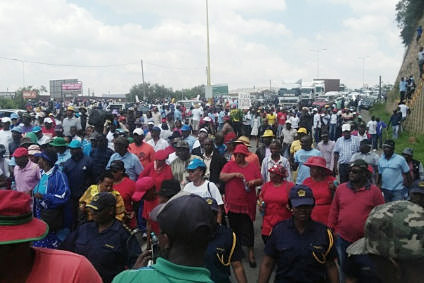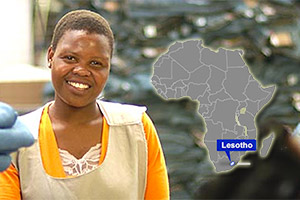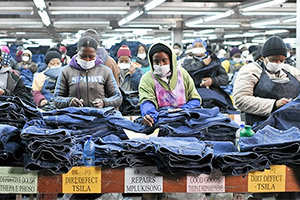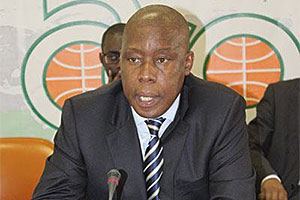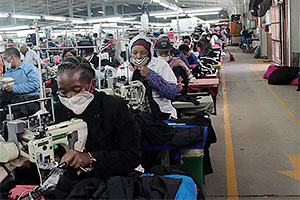Q&A: Lesotho looks to Canada to boost struggling textile industry
Lesotho, a tiny African nation surrounded by South Africa, wrapped up its first trade mission to Canada earlier this month.
Two million people live in Lesotho, which is less than half the size of New Brunswick. With a 45-year life expectancy, Lesotho has the world’s third-highest HIV/AIDS adult prevalence rate, according to 2009 estimates.
That puts Lesotho on the list of countries eligible for Canada’s Least Developed Countries Market Access Initiative, which came into effect in 2003 to help poor countries grow their economies through trade by scrapping tariffs and quotas on most of their exports to Canada.
Lesotho is looking to Canada as a possible new market for its textile industry, one of its main exports, which employed about 42,000 people in 2008. The industry has lately faced blow after blow: The US economic slowdown has lessened the trade flow to one of the biggest markets for Lesotho’s textiles, and a Southern Africa Customs Union credit scheme for textile producers ended in 2010. Thousands of workers have lost their jobs and factories have closed.
The government of Lesotho is planning to help rescue the industry from hard times with a $12.7 million US capital injection over the next two years, according to a report from the IRIN humanitarian news service.
Lesotho exports most clothing to the United States now. But with US preferential agreements for least developed countries set to expire in 2015, and the possibility of them not being renewed, Lesotho’s trade, industry, co-operatives and marketing minister, Leketekete Ketso, brought a delegation of six industrialists and three top trade bureaucrats from his country to Canada Oct. 31 to Nov. 4 to meet prospective buyers and try to tap into Canada’s similar mechanism to boost trade with poor countries.
Canada has “modest” bilateral trade relations with Lesotho, according to the Department of Foreign Affairs and International Trade’s website, including through Vancouver-based Lucara Diamond Corp. In 2009, the diamond mining sector contributed nearly 10 per cent to the country’s GDP. Canada imported $16.8 million worth of products from Lesotho in 2010, according to Industry Canada, but exported very little to the country—only $85,040.
The delegation held product exhibitions in Montreal and Toronto and met bureaucrats and politicians in Ottawa, including Jillian Stirk, the assistant deputy minister for Europe, Eurasia and Africa, and Gerald Keddy, the parliamentary secretary to the international trade minister.
Mr. Ketso, alongside Lesotho’s high commissioner to Canada, Mathabo Tsepa, sat down with Embassy to discuss the trade mission on Nov. 2. The following interview has been edited for style and length:
 Explain to me a little bit about why you’re here, what you’re doing, and who you’ve met with.
Explain to me a little bit about why you’re here, what you’re doing, and who you’ve met with.
LK: “This time around, on the trade part, we are trying to link our producers with the buyers in Canada. We have in Lesotho a large manufacturing and textile and clothing sector that has primarily been exporting to the American market under similar preferences as those of Canada.
“And, as you know, preferences come and go. They are never of a permanent nature. So we are hoping that we should be able to take advantage of other existing markets, and try to diversify.
“...So that is one way we can put the buyers and the sellers on a one-to-one basis so that they understand each other, and from the part of our officials try to understand in terms of the requirements of entry of our commodities into Canada.
“Even though there are preferences there are still certain standards that have to be met at the border. There are also rules of origin of the government, so we have to make sure that they’re in line with the preferences that the Canadian government is operating under.
“The second leg of our mission is investment promotion. While our country depends for now likely on the manufacturing of textile and clothing, we would like to diversify and broaden the product base, as well as the sectors from which these products are coming from.
“We look into our economy and we see that there are a lot of investment opportunities there. So we are trying to find out if we can interest the Canadian companies to invest in Lesotho in various areas. There’s mining, there is manufacturing in the area of electronics, there is agriculture, there is road infrastructure, there is buildings, there is tourism, and then there is water and many other opportunities that one can think of. Clean energy.
“...But there is a third dimension that draws us as to why in fact we’re primarily here in Ottawa, to try and see if we can broaden even at a government level, our economic co-operation with the Canadian government.”
 You mentioned diversification of trade, moving away from just the United States, and moving to Canada. Why is Canada so important to you? Why now?
You mentioned diversification of trade, moving away from just the United States, and moving to Canada. Why is Canada so important to you? Why now?
LK: “I don’t think we are exactly moving away from the United States. But it’s really to diversify, take advantage. We can sell to Canada, we can sell to the United States.
“Like I said, preferences are not always permanent preferences. In the United States, we have the so-called AGOA, African Growth and Opportunity Act. [It] is expected to expire around 2015.
“But there is also an important component of that African growth opportunity act, it’s called a third country fabric provision, which enabled the industrialist to source from almost everywhere they could find raw materials, as long as they were talking about least developed countries, and that one is expected to expire around 2012. That one could present some difficulties as we move forward.
“So we’re saying: ‘Let’s explore the opportunities.’ And some of the markets we’re focusing on, the Canadian market is there. But we are already indirectly shipping into Canada. But we have not actually directly established a long-term relationship with the Canadian people.”
 You mentioned the Market Access Initiative For Least Developed Countries...why is this the first time you have the opportunity to tap into it? Why now? It’s been ongoing for quite a while.
You mentioned the Market Access Initiative For Least Developed Countries...why is this the first time you have the opportunity to tap into it? Why now? It’s been ongoing for quite a while.
MT: “It was announced in 2003. For obvious reasons, it’s far away here; it’s difficult to convince exporters to export here. This is why we have this trade mission, so that they can experience, so that they can talk with the buyers.
“So it has taken a while for us as a country to convince them. Because the government is not doing business; it is the businesspeople who are doing business. But to engage them, to convince them to diversify, go beyond the US, has taken a while.”
 In terms of mining opportunities—I know diamonds are a large part of your economy. What kind of opportunities lie there for Canadian business to invest in that sector?
In terms of mining opportunities—I know diamonds are a large part of your economy. What kind of opportunities lie there for Canadian business to invest in that sector?
LK: “There are lots of opportunities. Because we already have one Canadian company—The Lucara Diamond Corp., in Vancouver—they are already in Lesotho.
“…We still have to believe that there are more than diamonds. A geological survey has not actually been done.”
MT: “That is where we will need Canadian expertise in geological mapping.”
 Do you find it difficult to really tap into Canada or to get the attention that you want?
Do you find it difficult to really tap into Canada or to get the attention that you want?
LK: “I don’t think it has been difficult to get the attention of the Canadians. It’s just that I think that in this area of business you need to fit in a lot more information about your country. So people will certainly inquire more about Lesotho, the opportunities. Like if we are trying to attract investors, the risk element is very important these days. ‘What kind of legal infrastructure is there?’ ‘Is Lesotho a signatory to the many international agreements that guard against that kind of risk?’ Yes, Lesotho is. So we are trying to comfort the investors in that area, but basically to provide as much information as possible.”
 What would you say to Canadians interested in receiving goods or services from you, but they’re maybe unsure about, for instance, economic stability or human rights issues, like child labour?
What would you say to Canadians interested in receiving goods or services from you, but they’re maybe unsure about, for instance, economic stability or human rights issues, like child labour?
LK: “Our human rights record is a very good record. Child labour—no not in Lesotho. Because we have under [International Labour Organization], what we call the Better Work program. And that is totally against child labour. Most of our firms and industrialists have exceeded that program. We strictly monitor it actually.”



